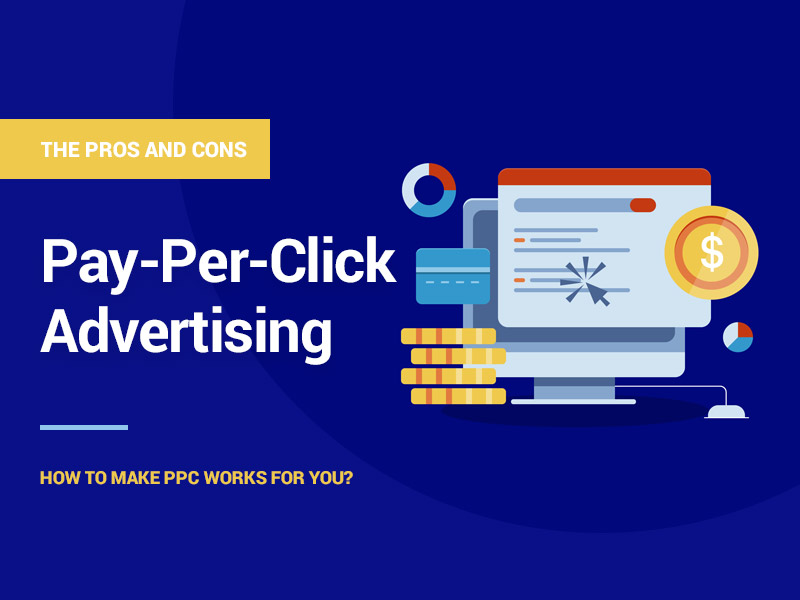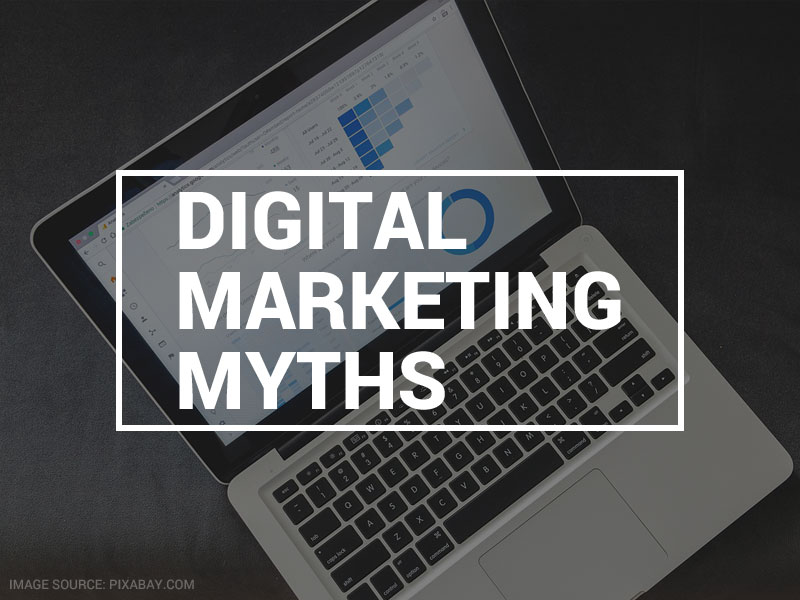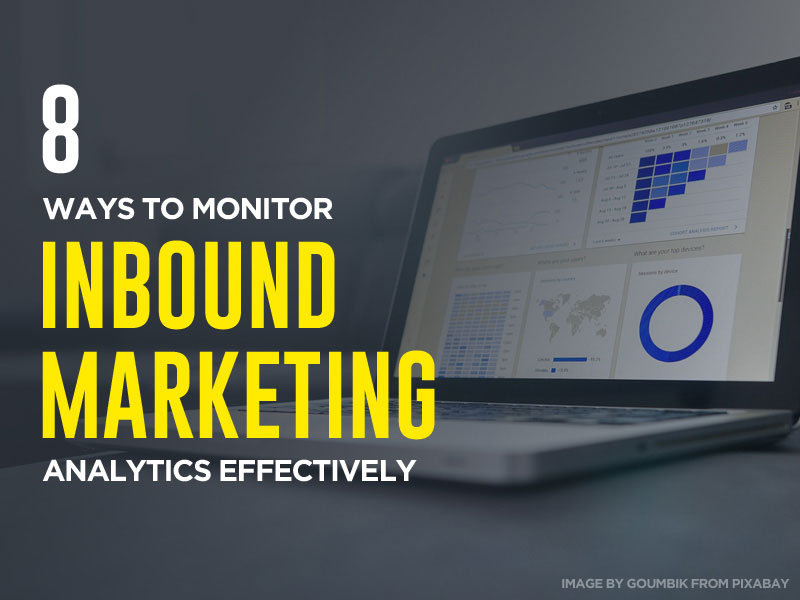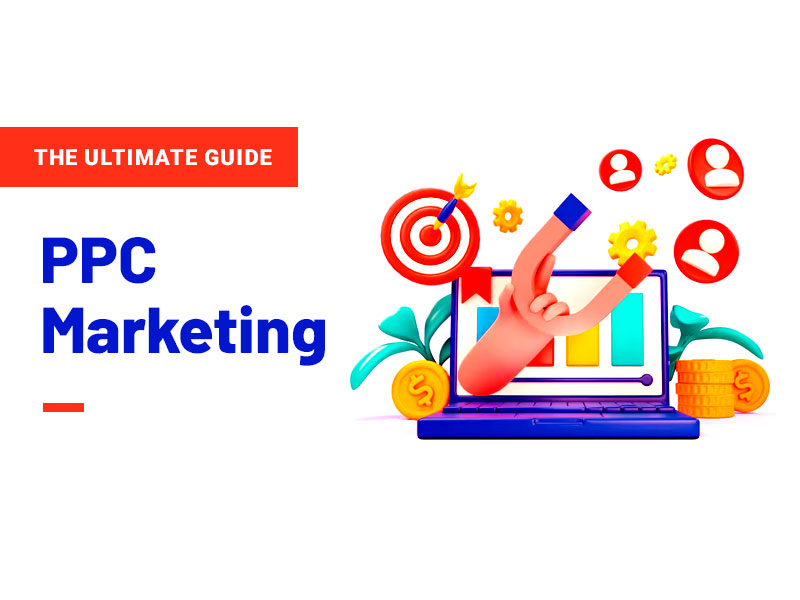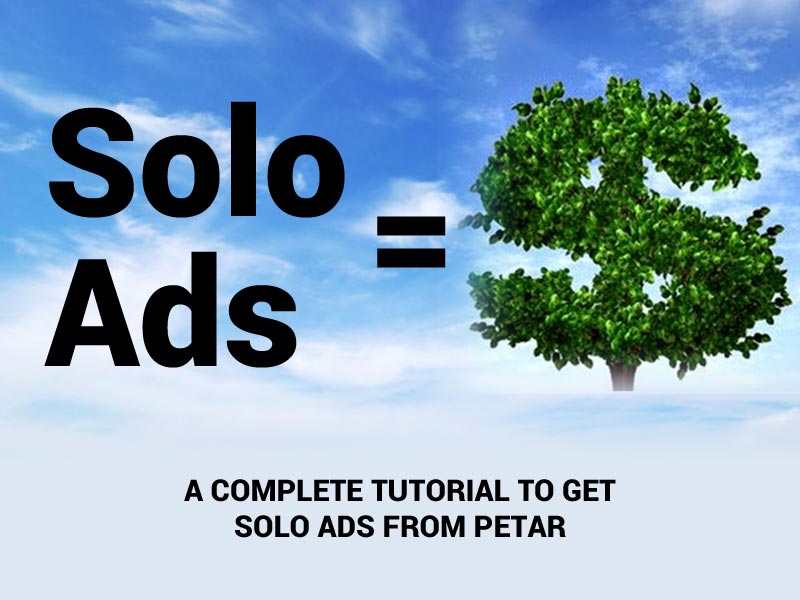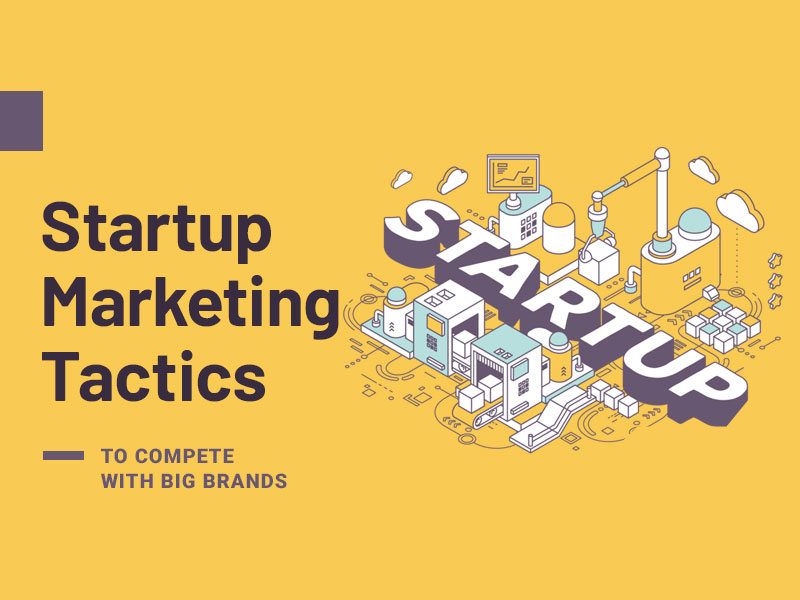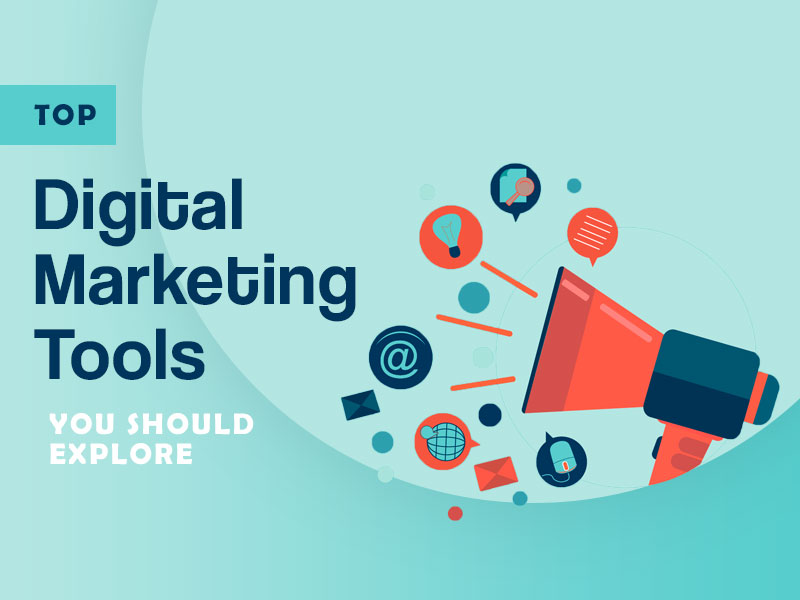Pay per click, often known as PPC, is a type of online marketing in that you only pay when people press on your advertisements. The most prominent PPC campaign is Search Engine Advertising, which refers to ads on search engines such as Google or Bing.
In its most primitive sense, search engine advertising comprises two components: keywords and advertisements. You choose the keywords for which you wish your advertisements to appear. On the surface, it’s the equivalent of stating, “I wish my advertisement to appear every time one searches for the keywords “flowers” on Google.” That is Search Engine Marketing (SEM).
Because all of the main search engines employ the pay-per-click concept, PPC is sometimes referred to as “Search Engine Advertising” by many individuals.
Push Marketing vs. Pull Marketing
If you want to characterize Push Marketing in one sentence, you force a brand onto people. People are not particularly seeking whatever you have to give, but you market your product to them regardless of whether or not they are interested.
The opposite of push marketing is pull marketing, which occurs when customers proactively seek what you have to sell, and you draw them towards your offering. They are already aware that they require a service such as yours, but they have not yet determined that you are the only one who can provide it.
What Matters Most is not only Obtaining Visitors but Attracting Visitors who are Relevant to the Company’s Objectives
The beauty of PPC ads is that they allow you to identify your most specific audience and develop tailored campaigns to have the most possible impact.
If a company sells computer equipment and has a local store, you may adapt your campaign to just target individuals in your immediate vicinity. Alternatively, if your business is only open in the am, you may restrict your advertising to just run during that time period, ensuring that customers do not waste their time in your store.
In summary, as long as your target audience is actively looking for you, there is a chance that they will find you through PPC.
Make Improvement to Your Advertising While it is Still Running
When engaging with traditional advertising media such as television or radio, you must put in some effort in order to generate the advertisement. Most of the time, you must pay in advance and select a time period for when you want it to display on your screen.
Speaking your thoughts or creating modifications to your completed product is practically impossible once you have submitted it for review. Once you’ve determined that the advertisement will run, the deal is sealed. It would be best if you allowed the advertisement to continue until it is completed. While it’s running, you won’t be able to check the messages or make any other changes to it.
When using PPC, it is simple to make quick judgments or modifications based on whether your messaging successfully turns clicks into users. In this approach, not only can you make adjustments fast and effortlessly, but you can also evaluate which advertisements perform better than others in a cost-effective manner.
In every advertising format, evaluation is critical, and PPC makes it simple to identify the ratio that works best for your company’s specific needs.
Common PPC Advantages & Disadvantages
Advantages
One of the most appealing aspects of Google advertising is that a sponsored search campaign is effective immediately. Users that search for your company using the criteria you choose will find your business at the top of their search results, allowing you to bring their attention to your website and maybe convert them into leads. There are even methods such as using negative keywords in Google Ads to bring views and attention to your sites. However, this can have a reverse effect if not used properly.
If you’re starting a business or website, organic traffic will take a little time to begin to flow in. It is possible to provide your site an immediate traffic boost through the use of pay-per-click advertising, allowing visitors to reach you while you stand in line for your website to rise in the Google search results ranks.
The same is frequently true in the case of social media marketing. Small businesses that are just getting started may find it challenging to expand their following organically and instead turn to paid advertisements to share their posts with a particular demographic that may click on the ad and follow the account and engage with the business later on.
As a result, pay-per-click is an intriguing option for organizations that want sales rapidly but are only getting started with their content marketing strategy for organic development.
Budgetary Control
Talking of paid advertising budgets, we recognize that Google advertising, social media advertising, and other PPC choices provide you with complete power over every dollar you invest in advertising.
The ability to establish daily spending restrictions for your advertising allows you to avoid going into debt while attracting visitors, converting them into leads, and measuring your return on investment (ROI). Furthermore, there is no requirement for minimum expenditure, making PPC accessible to organizations of all sizes and industries.
PPC is a Targeted Advertising Method
If you do agree to pay for traffic, make sure that your PPC is as effective as possible by customizing your adverts to your audience. Google AdWords, social media advertisements, and other comparable platforms provide you with a fantastic chance to be quite particular about the population you want to attract through paid search. To make the most of your investment, consider working with a PPC ad agency. Agencies like these specialize in crafting targeted, data-driven campaigns that maximize reach and ROI, helping you connect with the right audience more effectively.
It’s no secret that the traditional mainstream media is almost non-existent these days. Half a century ago, marketers might rely on tv, broadcast, and even publications to attract a large number of people. Today, however, there is no limit to reaching everyone with millions of different networks, websites, and radio broadcasting.
Advertisements that are highly targeted and hyper-focused have been shown to have an enormous influence on today’s viewers. If your promotion reaches countless individuals but communicating with, the incorrect audience is effectively a waste of money.
The use of pay-per-click advertising helps you to target your intended audience, ensuring that you never overspend on someone who is not likely to become a customer.
Ensure you have a clear understanding of your consumer before you begin using PPC. Once you’ve determined who you’re trying to reach, you can use that information to tailor your advertisements. You can limit the visibility of your adverts to a certain local place, category, and much more. You can even choose when the time of day your advertisement is displayed.
Because you have complete control, you can be brilliant in designing ads that resonate with your buyer profiles to draw visitors and increase traffic.
Keep Track of Your Results
Since you are paying for every click, it is critical to monitor your outcomes to optimize your investment return. PPC, on the other hand, provides you with several opportunities to enhance and compare your performance.
With so much information available at your fingertips, it is beneficial to collaborate with a marketing business that can make meaning of the numbers and interpret the vital tales they convey. When searching for marketing business, be aware of those unable to address your queries and who instead want to assume complete control of your PPC advertising campaigns.
Also read: Top 10 Benefits of PPC Advertising for Small Business
Disadvantages
There is No Longevity
While we appreciate that PPC advertising provides you with rapid exposure, we also recognize that the stream of leads stops when you opt out of paying for Google Advertising or social network advertising. For many businesses, this makes pay-per-click advertising too pricey to be a viable long-term strategy.
Because of these advantages and disadvantages of paid advertising, we often suggest that businesses combine PPC with other digital marketing techniques. For instance, with content marketing, you will conduct an initial expenditure in developing the content.
Still, after you finally be at the top of the search engine ranking, you will be able to contact customers for free for an extended period of time and reduce your reliance on paid advertising.
Bidding Process
Bidding is a type of competition in which two or more parties compete for a piece of equipment or a portion of land.
While PPC allows you to maintain strict control of your expenditure, this does not imply that it is always the most cost-effective alternative. Everybody strives to be at the top of Google search results, especially your competitors, so you should seek to be there. Furthermore, when two or more businesses compete for the same keyword position with their PPC campaigns, bidding wars might erupt between them.
Whenever this occurs, it’s necessary to keep in mind that your rivalry with other businesses has always been second to your ultimate goal: drawing customers to your establishment. As a result, you won’t have to break the bank to win a battle when you might save some dollars and win the bidding that counts instead.
It is one of the sections where we must balance the advantages and disadvantages of sponsored advertising for each customer. When it comes to some sectors, Google advertising isn’t aggressive, and bidding is infrequent, making PPC an easy victory for firms just getting their digital marketing plan up and running.
The competitiveness has made it too expensive for many others, and we advocate alternative investments that provide greater long-term development prospects. In any case, this acts as a valuable illustration of why it’s critical to combine paid search with an organic inbound approach in order to increase the number of “free” hits you receive by showing in search results the traditional strategy.
You Are Charged For Each Click
When you establish a PPC ad, you will be charged and for each click on your advertisement. They might be from legitimate prospects, rivals, or even those who have just clicked on your ad unintentionally. In any case, you’re on the hook.
As a result, make sure that your keywords and advertisements are focused and unique to your intended demographic. And make sure that you optimize your return on investment by understanding how to acquire and develop those leads once they arrive on your website.
And besides, the simple act of clicking is only half of the struggle. Visitors who click on your landing page and consider it uninteresting, unclear, or overpowering will click away, costing you both money and a potential customer. The most efficient PPC approach will channel individuals into your specific and clear strategy rather than serving as a substitute for developing that method in the first place.
Consumers Know What They Are Getting
In summary, many consumers tend to disregard sponsored advertisements. Customers will often go through PPC advertising and sponsored social media postings marked with “sponsored” on social media platforms.
They will instead look for the organic results, which are marked on Google. This isn’t entirely a terrible thing. Even seeing your company’s website on their device will assist them in becoming more familiar with your brand, and you will not be charged for that advertising until it results in a click.
However, this acts as another caution that pay-per-click advertising is most effective when used as a component of a comprehensive digital marketing plan rather than as a “remedy” for promoting products and revenue.
PPC advertising can assist you in creating some traffic — and it can do it fast. You can only reap the full benefits of PPC advertising if you also have a comprehensive inbound marketing plan in place.
Assets of Imagination
It was all about the keywords when it comes to Google AdWords. In terms of Facebook advertising prices and Instagram advertising costs, however, there are a few more factors to consider. Social advertising provides your audience with a more comprehensive advertisement instead of just appearing on search results pages with a title and meta description.
This implies that you must consider the aesthetic impact of a graphic, image, or other similar visual components while organizing and financing. If your company has an extensive collection of photographs and videos to pick from, this will not be a problem; but, if you need something unique and eye-catching, it will be worth the money to hire a professional. Not to mention the fact that this graphic must be suited for both desktop and mobile devices.
Also read: 7 Common PPC Mistakes and How to Avoid Them
So, Is Pay-Per-Click Advertising Ideal for Your Company?
After balancing the advantages and disadvantages of paid advertising, hopefully, you can understand that PPC may be a terrific approach to gain recognition, outreach, and lead traffic faster if done correctly.
On the other hand, it may get quite expensive quickly, so being well-informed is essential for profitability. That’s why we usually propose combining pay-per-click advertising with organic SEO (through content marketing) to assist you in achieving your marketing objectives without going broke.
